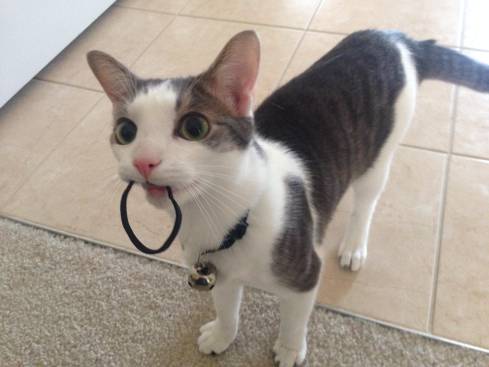Cats love to check out plants indoors or in the garden. Some even try to eat plants they find, including grass, leaves, and more. Maybe our feline friends feel as if they’re out in the big jungle when playing around with plants!
Connect with a verified veterinarian in minutes. Licensed vets are available 24/7 to answer your questions. No need to worry about your furry family member.
Cats do enjoy playing with plants; however, some plants can be harmful to cats.
Has your cat eaten a lily? Are you worried the lily will make your cat sick? If so, then you’ve come to the right place.
In this article, we’ll take a look at lilies and whether or not they can make your cat sick. Let’s get started!
What are Lilies?
Lilies are beautiful plants with showy flowers. They’re part of the Lilium family, which is also called “true lilies.” There are many types of lilies, including the tiger lily, orange lily, calla lily, stargazer lily, and many more.
Lilies have special symbolic meanings. For instance, they are associated with devotion and purity, rebirth & motherhood, good luck at weddings (in China), and more.
What’s more, lily bulbs and roots have medicinal properties. These were often boiled into teas to treat fevers, help with childbirth, stomach problems, and more.
But what happens if a cat eats a lily? Will the lily make the cat sick?
Lilies & Cats
Unfortunately, lilies are extremely toxic to cats. All parts of the plant are toxic, including the stem, leaves, flowers, pollen, and even the water in the vase. It only takes a small amount of lily plant to cause kidney failure in less than three days in a cat.
Here’s a list of the most dangerous lilies for cats:
- Asiatic lily
- Daylily
- Easter lily
- Japanese Show lily
- Oriental lily
- Rebrum lily
- Stargazer lily
- Tiger lily
- Wood lily

Review symptoms, medications & behavior to keep your pets healthy with a Vet Online in just minutes.
Ask a Vet Live NowSymptoms of Lily Toxicity in Cats
You may notice these symptoms if your cat has eaten some part of a lily:
- Lethargy
- Drooling
- Vomiting
- Diarrhea
- Loss of appetite
- Increased urination
- Dehydration
If you notice any of these symptoms in your cat, then call the vet immediately. This is a life-threatening medical emergency.
The first symptoms of lily toxicity can show up anywhere from the time of ingestion to 12 hours after. After this, it’s possible the lily toxic will begin to cause kidney failure. Lily can quickly cause death if not treated as soon as possible. And even if the cat is treated within 18 hours of eating a lily, there’s a high chance the cat will end up with permanent kidney failure.
So, be sure to call the vet as soon as possible—you may save your cat’s life.
Connect with a verified veterinarian in minutes. Licensed vets are available 24/7 to answer your questions. No need to worry about your furry family member.

Tom
Tom has always loved to write since he was little - he wanted to be either a writer or a veterinary doctor, but he ended up being a professional writer while most of his works are based on animals. He was born in San Francisco but later moved to Texas to continue his job as a writer. He graduated from the University of San Francisco where he studied biotechnology. He is happily married and a soon to be father!
Review symptoms, medications & behavior to keep your pets healthy with a Vet Online in just minutes.
Ask a Vet Live Now



